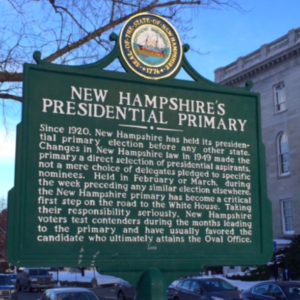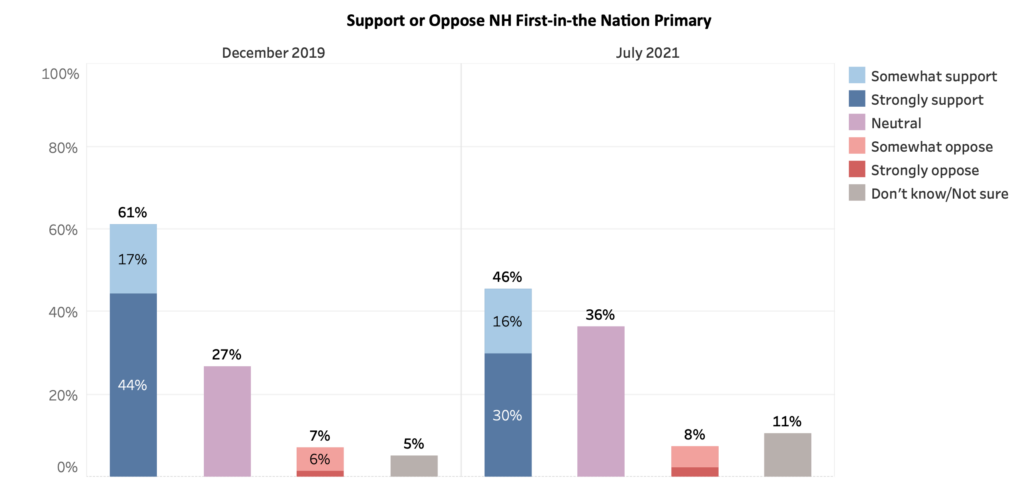If politics kills New Hampshire’s First in the Nation primary, the fingerprints on the corpse will all be from Democrats.
New Hampshire Democrats, mostly.
It’s no secret the national Democratic Party wants to strip the primary from the Granite State. Former Senate Majority Leader Harry Reid has made it his late-in-life mission to move the first primary to his home state of Nevada, and he has plenty of allies among the more “woke” corners of the Democratic coalition.
For years, prominent Democrats have been arguing the state is too White to be allowed to play such an important role in the party’s nomination party. Some have even said the state’s Democrats are too racist — or at the least, too racially insensitive — to go first.
Then came the decision of the entire New Hampshire federal delegation to back H.R. 1, which overrides state election laws and, in the opinion of Democrat Secretary of State Bill Gardner, endangers the FITN primary. Taking on Gardner over the New Hampshire primary is new territory for these Democrats.
It could be, however, that they know their electorate better than Gardner does.
Buried in the newest Granite State Poll from the UNH Survey Center released Tuesday are some interesting questions about the #FITN primary and voter attitudes. One astonishing number: Fewer than half of Granite Staters support the state law requiring New Hampshire to go first. That’s down from 61 percent just two years ago.
That’s a 25 percent drop in support. How did it happen?
Democrats.
While 61 percent of registered Republicans and 48 percent of undeclared voters support the FITN state law, just 29 percent of Democrats feel the same. A solid 43 percent of Democrats are neutral and 17 percent oppose the law.
The percentage of Granite State GOP’ers who oppose it? One percent.
In one sense, Democrats abandoning the New Hampshire primary is inevitable. When 90 percent of Black voters and a majority of Hispanic voters support the Democratic Party, it’s unrealistic to think a state that’s 95 percent White won’t get additional scrutiny from the party.
But those demographics aren’t news. That was true in 2008 and 1992. What has changed is the party’s shift to race-based progressive politics. The fight over Critical Race Theory is only a fight because many progressives in the party embrace it. Bill Clinton’s Democratic Party would have seen how poorly it performs among suburban voters and abandoned it.
And it’s not just CRT. The new, progressive Democratic Party embraces reparations for slavery, ending merit entrance for education and laws preventing White people from being eligible for aid that’s available to people of color. (Two of those policies implemented by the Democrats since Joe Biden took office have already been struck down by courts.)
New Hampshire Democrats may want to assuage their liberal white guilt more than they want to play a role in picking their party’s nominee.
And that’s not the primary’s only demographic problem. The Democratic base is also younger and more urban, while New Hampshire voters are among the nation’s oldest and most rural. To paraphrase “Animal House’s” Dean Wormer of Faber College: Old, White, and rural is no way to go through a Democratic primary.
Sens. Jeanne Shaheen and Maggie Hassan have given lip service to supporting the FITN primary, which is as important to New Hampshire’s economy as its politics. But they’ve hardly made protecting the primary a top priority.
Why should they? If New Hampshire’s Democratic voters aren’t going to fight to keep their primary, there are plenty of people in other states more than happy to take it.




